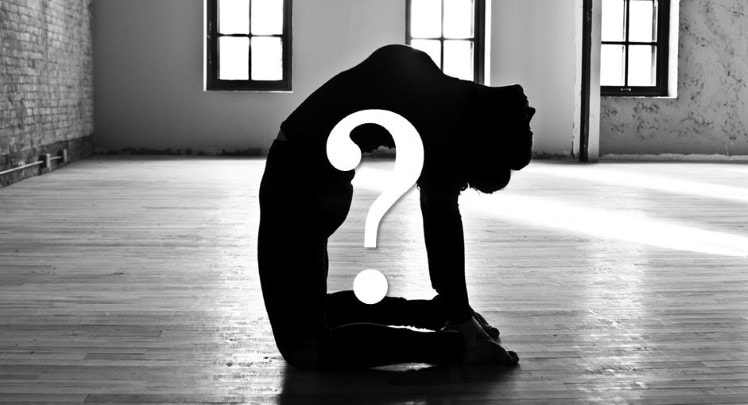You don’t really need permission to ask your yoga teacher questions about yoga. However, being a former quiet, shy student, I know that sometimes it helps to invite questions first. So now you have the invitation—ask questions! We love it when you do!
"If you have any questions…"
In the first years of my practice, when the teacher offered this seemingly requisite invitation for the students to ask questions, I didn’t take them up on it.
I was a former athlete used to being told what to do at practice or game time when there wasn’t a whole lot of time to offer lengthy explanations about the reasoning. So I expected the teachers to just tell me what to do, no questions asked.
However, as you might suspect, that expectation shifted over time, and I realized that my yoga practice was for me, not the teacher or the coach.
If I didn’t ask questions when I had the opportunity, I could miss out on developing a stronger, deeper connection to my practice, my body, and my mind. In the former scenario, I’d been waiting for someone to tell me what to do, rather than deciding for myself.
So I began to linger after class whenever I needed clarification on poses, movements, and so on. I was nervous at first, but was always met with a welcoming smile from my teachers. They were delighted to help clear up my cloudiness.
Be your own best advocate.
Our yoga practice offers each of us a way to connect more with ourselves. That means we can become more of an active participant in our learning process. Here are a few common scenarios where questions for your teacher are especially welcome. Think about it next time you’re in class!
1. Anatomy Review: “Umm…Where is my femur, again?”
Unless you’re a doctor or body worker who knows all they need to know about the human body (and truthfully, I don’t think this is possible as our bodies are constantly evolving and offering puzzles every day), the specifics of anatomy and how it relates to movement will always be a source of learning.
So if the teacher names a body part that vaguely reminds you of freshman Bio, it pays to ask what they’re talking about after class. Remember, there are no silly questions, just opportunities to grow!
2. Basic Sequencing: “Why are we doing this pose, now?”
Ever wonder why your teacher tends to end your practice with Forward Folds or hip openers? Or why he or she starts the class in Child’s Pose?
It can help to know why your teacher chose a particular order of poses. Notice what practices seem to work for your body and mind, and what might be more challenging. All of this can inform your personal practice when you don’t always have a teacher guiding you through poses.
3. Subtle Cues: “How do you explain what we can’t always see with our eyes alone?”
When a teacher starts speaking about more subtle actions that aren’t as easy to see like breath work or engaging smaller muscle groups, it helps to ask specific questions if you’re feeling lost.
These kinds of subtle actions sometimes need further explanation and applicable demonstrations before they make start to make sense.
4. Modifications: “I’m dealing with an injury/specific condition.”
Your average group class may not always include modifications for specific conditions. Therefore, if you do have a healing injury or something else that may affect your physical practice, it definitely pays to ask your teacher for suggestions and advice on how to best tailor the practice to meet your needs.
Your teacher is an instructor, not a mind reader, so take it upon yourself to actively ask and explore as many options as you can so that your practice remains nourishing and supportive.
5. Modifications: “When should I use props, and how?”
This could be a corollary of the last one, but this is another opportunity for you as the yogi to actively direct your practice.
Sometimes we don’t quite know when to bring props into the practice. When in doubt, like in moments when the pose feels uncomfortable or painful, don’t be afraid to ask your teacher for suggestions about props.
This is often a great way to learn more about the mechanics of the poses and their overall aims (i.e. heart opening, core strengthening, or calming).
Let this only be the beginning of your lifelong practice!
Think of this as the start of your journey toward developing a strong personal, lifelong practice!
By no means are these the only areas yogis will have questions; I’ve circled around some common topics that touch on the physical part of the practice, but there are infinite opportunities to deepen your practice in all aspects: mentally, emotionally, spiritually and so on.
Do feel free to ask any yoga related questions when the appropriate occasion does arise.
And even if your teacher(s) aren’t experts on the various topics, they can still help point you in the right direction. And you can also feel free to send your questions to me at DOYOU (comments section below), or some of our other spectacular contributors, too.
That’s why we’re here, to help you along your path to loving yoga!
Image Credit: Joel Nilson


